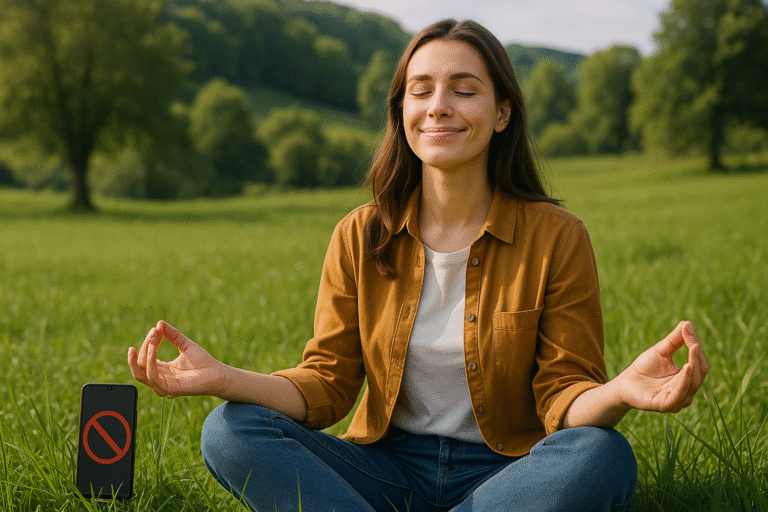The concept of a “digital detox” took center stage in New York City as wellness experts, tech leaders, and mental health advocates gathered for the inaugural Unplugged Summit. The event focused on the growing trend of disconnecting from digital devices to prioritize mental health, well-being, and personal relationships. With the overwhelming presence of smartphones, social media, and constant connectivity, many people are seeking ways to disconnect and recharge.
Key figures at the summit included Dr. Emily Harris, a clinical psychologist specializing in digital addiction, and Bill McMillan, the CEO of WellnessTech, a company that has developed tools and apps designed to help users manage their screen time. Dr. Harris spoke extensively about the psychological effects of constant digital engagement, particularly among younger generations. “We are experiencing a collective burnout,” she stated. “The human brain is not wired to be constantly connected, and it’s having profound effects on our mental and physical health.”
The event also featured workshops on how to implement a digital detox in everyday life. Sessions focused on setting boundaries with technology, such as reducing screen time before bed, limiting social media use, and practicing mindfulness and meditation. McMillan, whose company has partnered with wellness centers to promote healthier tech habits, explained that the goal of the detox movement is not to demonize technology, but to help people find balance. “Technology has tremendous value, but when it overtakes our lives, it becomes problematic,” McMillan said.
Throughout the summit, there was a strong emphasis on the importance of taking time offline. Experts noted that the digital age, while offering unparalleled convenience and connectivity, has also led to issues like increased anxiety, sleep disorders, and a diminished sense of presence. Many people, particularly in urban centers like New York City, feel the pressure of constant notifications, emails, and social media updates, which can lead to feelings of stress and overwhelm.
In addition to the workshops, the summit featured panel discussions with influencers and tech founders who are advocating for a shift in the digital landscape. Leading tech personalities such as Aisha Rios, a social media influencer with over 1 million followers, shared her personal journey of reducing her screen time and focusing on real-life connections. “I used to feel pressured to be constantly online, but I realized I wasn’t enjoying life as much as I should,” Rios shared with attendees. “Taking breaks from social media has helped me reconnect with myself and my friends.”
As the digital detox movement gains traction, businesses in New York City are responding to the growing demand for “unplugged” experiences. Numerous wellness retreats and spas are now offering programs that focus on disconnecting from technology, and local cafes are promoting “phone-free zones” where patrons are encouraged to leave their devices at the door.
While the digital detox trend is still in its early stages, its popularity is a sign of shifting priorities in a world that has become increasingly dependent on technology. The Unplugged Summit highlighted how individuals are becoming more aware of the need for balance in their tech-driven lives. As the movement grows, it is clear that people are seeking ways to cultivate a healthier relationship with their devices, embracing moments of quiet reflection and personal connection away from the digital noise.



